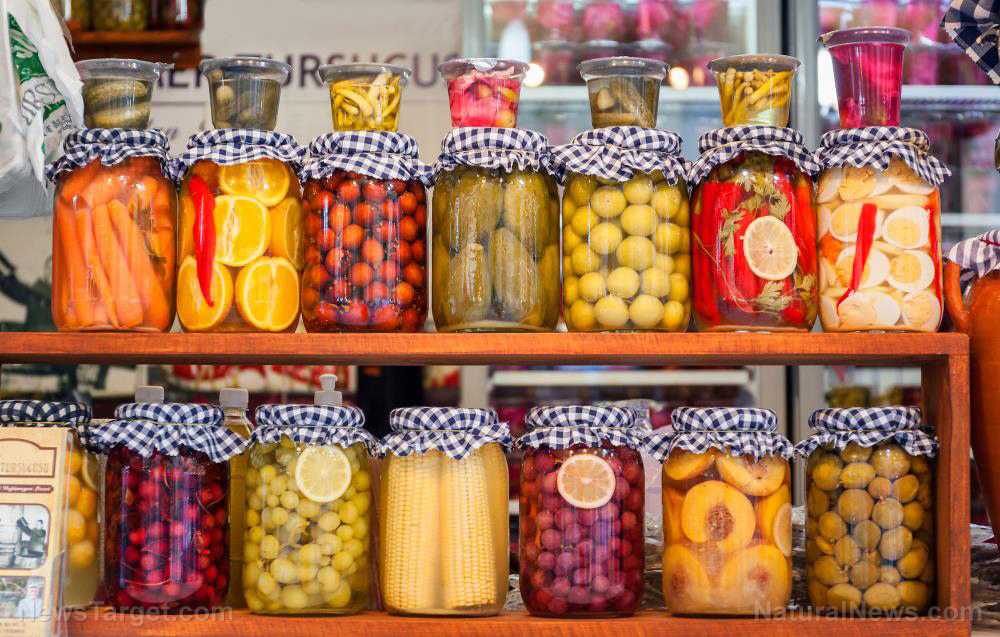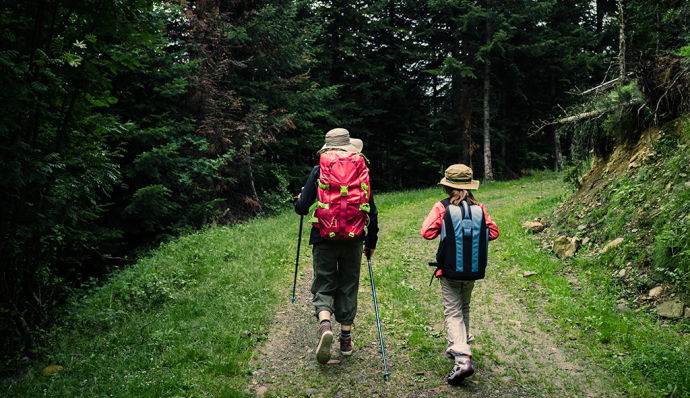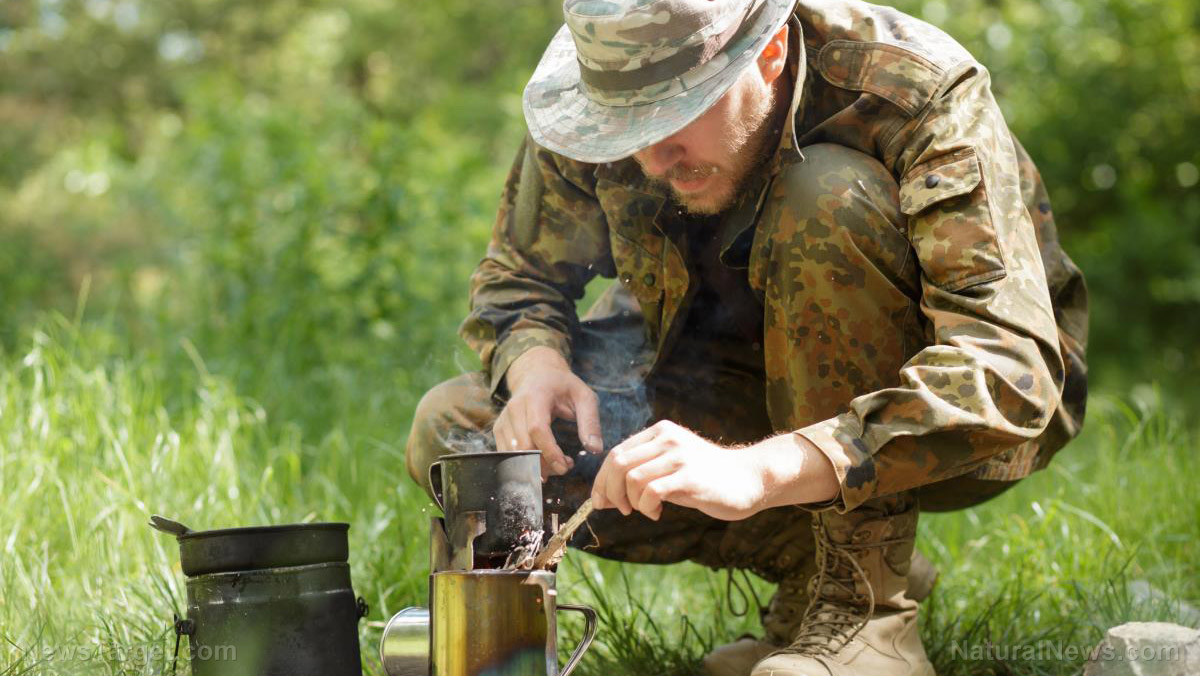Food storage tips: The top 15 foods with a long shelf life
04/27/2019 / By Zoey Sky

You can store all sorts of items in your pantry as long as you have enough space. However, the key to having enough supplies when SHTF is storing foods that have a long shelf life. (h/t to MDCreekmore.com)
The foods listed below can last for a long time. Still, you must discard any food item that looks, smells, or tastes bad. If mold or insects appear in your food, discard it immediately. Contaminated food can present serious health hazards if eaten.
Canned fish
Canned fish like salmon, sardines, and tuna are full of protein and omega-3 fatty acids. Unopened canned fish stored in a cool, dry place can last up to three years.
Canned goods
When buying canned goods, buy items that your family likes and won’t mind eating a lot of if they have to. Depending on the variety, canned fruits and vegetables contain different vitamins and nutrients, which you will need to keep your strength up in a post-SHTF world.
It’s safe to eat canned foods at room temperature, but with the exception of canned fruit, most are better heated. Prepping your pantry: 10 must-have food items with a long shelf life.)
Cocoa powder
When stored properly, an opened package of unsweetened cocoa powder will last for around three years at room temperature.
Take note that pre-mixed hot chocolate powder contains dairy so it won’t last as long.
Dried beans and legumes
This includes beans, lentils, and peas, which are low-fat, cholesterol-free sources of protein and fiber. Stock up on beans and legumes so you can make lots of filling meals.
To rehydrate dried legumes, place them in a large pot and cover with water. Heat to a boil, then turn the heat down. Cover the pot loosely and stir occasionally until the beans are tender.
The power of the elements: Discover Colloidal Silver Mouthwash with quality, natural ingredients like Sangre de Drago sap, black walnut hulls, menthol crystals and more. Zero artificial sweeteners, colors or alcohol. Learn more at the Health Ranger Store and help support this news site.
The time it takes to rehydrate beans depends on the size of the legume. Kidney beans may take about one hour to rehydrate while peas will only take at least 30 minutes.
Dried fruits and vegetables
Moisture promotes decay. Drying fruits and vegetables removes all the water to prevent decomposition. Dehydrated vegetables, like dried green beans, will last for about eight years in an airtight container.
Dehydrated carrots will last for about 25 years, while dried corn has a ten-year shelf life.
Dried fruit can last for about one year. Store dried fruits and vegetables in small airtight containers, like Mason jars, Mylar bags, or plastic bags. Each time you open the container, food is exposed to air and moisture, which lowers its quality.
Dried pasta
All types of dried pasta will last for about 30 years when stored correctly. Pasta has carbohydrates which provide energy and fiber, along with iron and magnesium, and a small amount of protein.
Honey
Honey‘s low moisture content and acidity makes it inhabitable for bacteria. Stored at room temperature, honey will last indefinitely. In time, honey may become crystallized. Just heat a crystallized glass jar of honey over low heat in simmering water until it turns liquid again.
Honey has antioxidants that protect the body’s cells from damage. Honey has antibacterial and anti-inflammatory properties, which means it can be used to treat burns and wounds.
Jerky
Raw meat can be contaminated with disease-causing microorganisms. Drying meat removes the moisture that allows foodborne pathogens to grow.
You can make your own jerky from beef or pork. To make jerky, slice raw meat into strips about 1/4-inch thick. Arrange strips on trays or baking sheets, but don’t let the meat touch or overlap. Bake the meat in a 140-degree oven for 10 to 24 hours.
Alternatively, you can use a food dehydrator to make jerky at home. Vacuum-sealed jerky will last for about two years. Jerky contains iron, potassium, protein, and zinc.
Nut butters
Nut butters like almond, cashew, and peanut will last for about two years unopened. Opened jars of nut butter will last for about six months. Nut butters contain healthy fats and protein.
Pickled vegetables
Pickled vegetables are stored in jars that contain a solution of salt, vinegar, and water. The acid from the vinegar combines with naturally forming acids in the vegetables to slow down the decaying process that makes fresh vegetables go bad.
Unopened jars of pickled vegetables may last for about two years.
White long-grain rice
Brown rice will last for about one year. However, its bran contains oils that can go rancid.
White long-grain rice is a food staple that will last indefinitely as long as it’s stored in an airtight container in a cool, dry place. The bran has been removed from white rice, which means it can last much longer than brown rice.
Rice is full of carbohydrates. It also contains magnesium, vitamin B6, and a bit of protein and fiber.
Rolled oats
Oats are full of fiber, iron, potassium, zinc, and other essential nutrients. Stored in an airtight container, oats will last for about two years.
Salt and sugar
Store salt and brown or white sugar in an airtight container and they will last for a very long time.
Sugar is still safe to eat even if it hardens over time.
Store survival food properly to extend their shelf life so you can keep your family well-fed even after SHTF.
Sources include:
Tagged Under: canned food, dehydrated food, dried food, emergency food, food independence, Food Preservation, food safety, Food storage, food supply, home canning, homesteading, honey, jerky, off grid, preparedness, prepper, prepping, shelf life, storable food, survival, survival food, survival gear



















